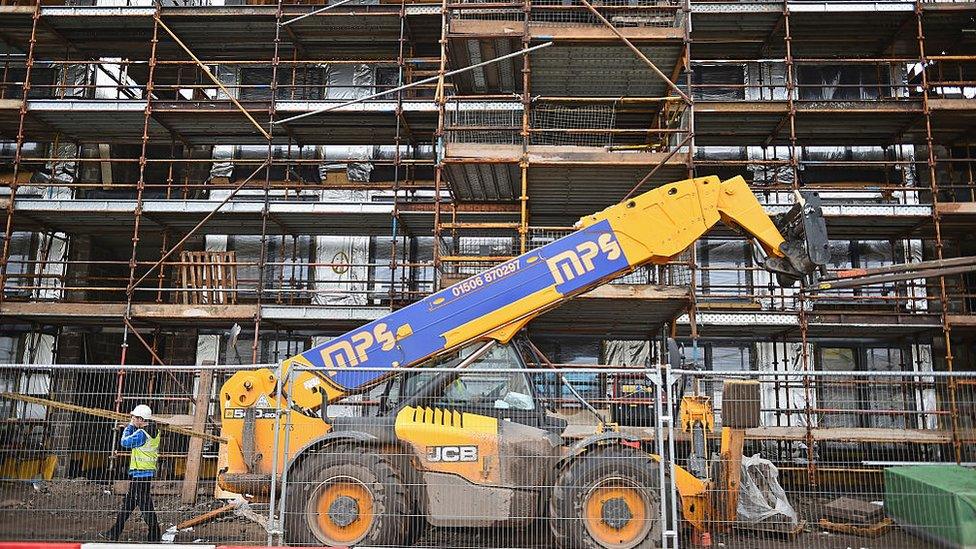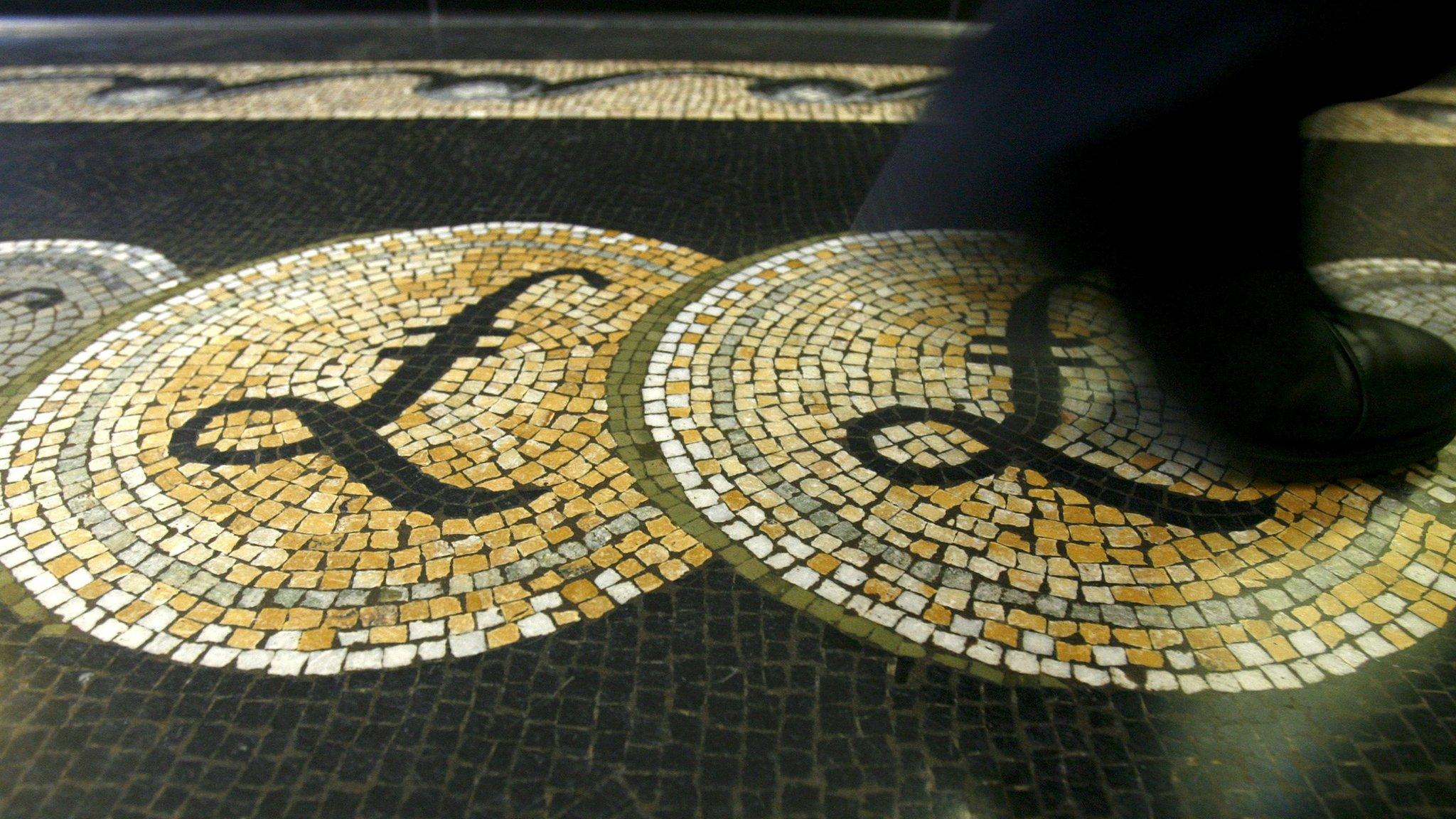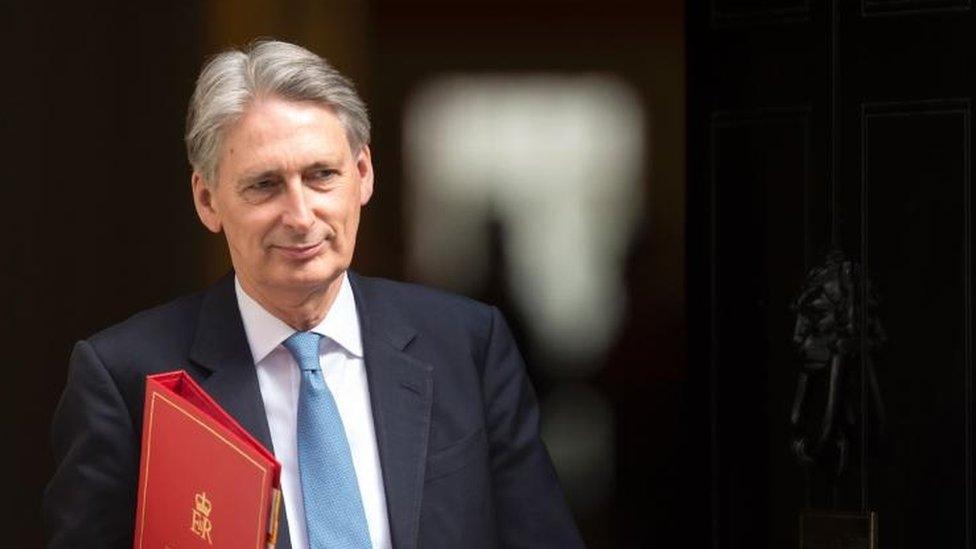Brexit 'will be horrible for UK economy' - fund manager
- Published

House prices may fall in the wake of the Brexit vote
The vote to leave the European Union will have a "horrible" impact on the UK economy, which could "judder to a halt", a leading fund manager has said.
Richard Buxton, chief executive of Old Mutual Global Investors (OMGI), described Brexit as "really bad news".
He told the Guardian, external he feared the move could lead to a recession.
Financial markets would remain volatile while the government negotiated an exit deal with the EU, Mr Buxton added.
OMGI has managed funds worth £26bn for both institutional and individual investors.
Speaking to the newspaper, Mr Buxton said the stock market had priced in a "pretty significant recession" for the UK given the slide in share prices of companies such as house-builders and banks.
Shares in two of the UK's biggest house-builders, Barratt Developments and Persimmon, have fallen almost 30% and 25% respectively since 24 June - the day the referendum result was announced.
"I think the economy is going to judder to a halt [or] have a mild recession, but I don't think it is going to be as severe as some of these shares are pricing in... The real economy is only going to gradually emerge over the next three to six months," Mr Buxton said.
House prices are expected to fall across the UK in the next three months, a survey by the Royal Institution of Chartered Surveyors has found.
The new chancellor, Philip Hammond, has said the Brexit vote has "rattled" financial markets and that the UK economy will face challenges following the "shock" of the referendum outcome.
Duty cuts
Mr Hammond was facing "one of the most unusual economic environments I have known in my 30-year investment career", Mr Buxton said.
He predicted the UK government would take steps such as cutting stamp duty on house purchases and fuel duty in the Autumn Statement to help compensate for the dramatic slide in the pound.
Sterling was trading as high as $1.50 on the day of the EU referendum, but collapsed to as low as $1.28 in the wake of the leave vote.
The currency is now worth just under $1.32, but several big banks predict the pound to fall to $1.25 or lower given the expectations of interest rate cuts and slowing economic growth.
Mr Buxton said some OMGI clients had asked for their money back, but one big foreign client had increased its investments on the belief that the slide in sterling and falling share prices meant there were bargains to be had.
However, many Old Mutual clients were still "slightly stunned" by the Brexit vote and were reluctant to take any action, he said.
"That will fade over time, but it's how can we get out to people and say 'look, we do still think there are some amazing investment opportunities here'," Mr Buxton said. "Our mood here is we're glass half full people."
- Published18 July 2016

- Published14 July 2016

- Published14 July 2016
